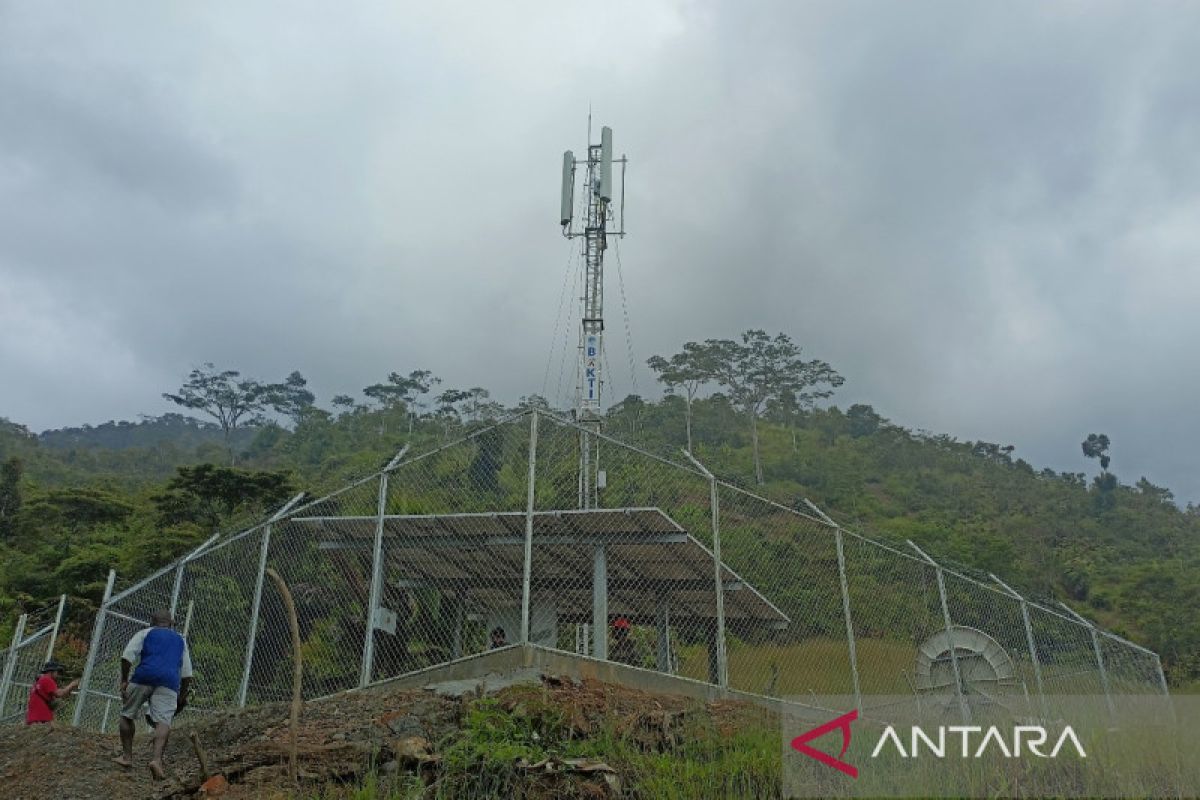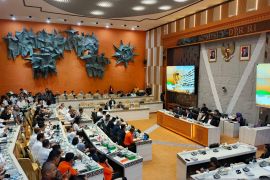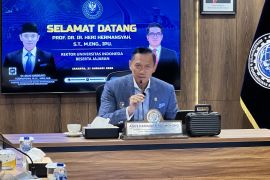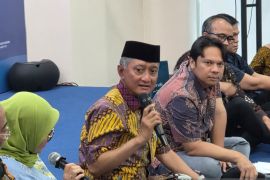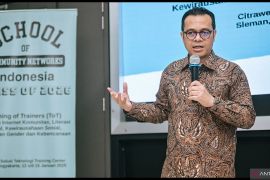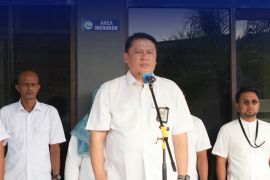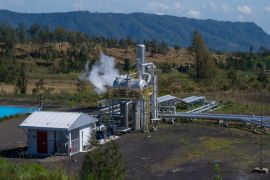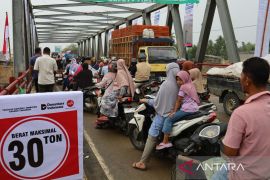I think we are making history, as we never give up to provide connectivity throughout Indonesia in spite of the various challenges.Jakarta (ANTARA) - Digital connectivity had been one of the Indonesian government’s development program focuses in the last few years, especially after the COVID-19 pandemic broke out, which had forced people to conduct their activities online.
Hence, the Communication and Informatics Ministry is striving to establish 4G Base Transceiver Station (BTS) towers in 7,904 outermost, underdeveloped, and frontier (3T) villages throughout the country.
Some 65 percent of the figure, or 5,204 villages, are located in the provinces of West Papua and Papua, with one of them being Pegunungan Bintang District in Papua Province.
Anang Latif, the president director of the Telecommunication and Informatics Accessibility Agency (BAKTI) of the ministry, stated that construction of the BTS towers was aimed at addressing the connectivity gap in Indonesia.
Latif acknowledged that it was not easy to develop 4G BTS towers in Pegunungan Bintang, as the location can only be reached through air transportation.
In addition, unpredictable weather conditions, the inconducive security situation, and limited budget are the challenges that must be addressed in implementing the development program.
However, the various challenges failed to dampen the enthusiasm of BAKTI to continue to provide telecommunications networks in the 3T areas of Pegunungan Bintang to facilitate the local people to access the digital world.
"I think we are making history, as we never give up to provide connectivity throughout Indonesia in spite of the various challenges,” the president director remarked.
BAKTI cooperates with the consortium of PT Infrastruktur Bisnis Sejahtera (IBS) and PT ZTE Indonesia to build BTS towers in the district.
Head of Supply Chain Management of PT IBS Meita Dwivernia spoke of her side having sought to expedite the construction of 4G BTS towers in Papua Province, including in the Pegunungan Bintang District.
Out of the total 1,811 towers targeted to be completed by PT IBS in the first phase of the development program, some 700 of them have been operated.
Dwivernia noted that distributing materials to build communication towers in the 3T regions was replete with challenges.
For each construction site, her side must supply around 90 types of components, including the materials for the tower, power generator, Very Small Aperture Terminal (VSAT), and BTS equipment, whose weight reached up to 10 tons.
In 3T areas where land access is difficult, such as in Pegunungan Bintang District, PT IBS must use a caravan, aircraft, or helicopter to transport the materials.
However, the shipping process does not always run smoothly. If the weather conditions are bad, then the delivery process must be postponed for a while.
The inconducive security condition also affects the material distribution activities and the construction of 4G BTS towers in the 3T regions in Papua Province.
Hence, PT IBS must always coordinate with local governments and all stakeholders to ensure the safety of the employees while transporting the materials and completing the construction.
An officer for Government Public Relations and Transportation at PT IBS, Benyamin Sembiring, noted that due to the dynamic situations, his side had to slow down the implementation of the project on several occasions.
Another challenge posed is in the form of public rejection since they have not understood the benefits of developing telecommunications infrastructure.
The officer emphasized that his side must persuasively work towards providing an understanding to the public regarding the importance of infrastructure development.
Local residents are also involved as workers of the projects. The attempt is expected to create a sense of belonging to the infrastructure.
In the midst of various challenges, the corporation continues to strive to expedite the establishment of communication towers in the Papua region, so the project can be completed according to the target.
Related news: W Papua: Environmental education diffusing through conservation areas
Currently, PT IBS has increased its material delivering capacity. The attempt is expected to accelerate the material transport process from the warehouse to the construction site.
Currently, the delivering capacity has reached an average of 300 tons per week, from the initial capacity of 50 tons.
Head of the Communications and Information Office of Pegunungan Bintang District Alferus Sanuari noted that BAKTI had approved the construction of telecommunication towers at 196 sites throughout 2022.
Meanwhile, the number of proposed tower sites in the district reaches 261 locations, covering an area of 15,683 square kilometers.
The office head stated that out of the approved 196 construction sites, 44 are being built. Currently, 10 BTS towers have been on air in the district.
Sanuari expected that despite the various challenges, the development projects can be completed, so people can enjoy optimal telecommunication access.
"If it is possible, the development will be completed, whether in 2022 or 2023, so we can eliminate the blank spots throughout the mountainous areas," he added.
In addition to improving digital connectivity, the government is striving to increase the number of digital talents in Indonesia.
Related news: PLN completes 11 large-scale power infra projects in Papua, Maluku
For instance, once the BTS tower is on air, BAKTI, in collaboration with various ministries and universities, deploys a team to disseminate information regarding the use of internet to the surrounding community.
The Communication and Informatics Ministry also implements a National Digital Literacy Movement to improve Indonesian digital talents.
In 2021, the ministry had conducted digital literacy training for around 12.5 million Indonesian people with four basic curricula: digital skills, digital ethics, digital safety, and digital culture.
It is targeted that by the end of 2024, as many as 50 million people would have received basic digital training.
To this end, developing rural areas in Indonesia to become connected regions cannot only be implemented by establishing adequate infrastructure, as it requires comprehensive development, including improving the skills of the community.
Related news: West Papua police tighten security ahead of W20, Y20 events
Related news: Tribal leaders' support for special autonomy big hope for West Papua
Translator: Fathur Rochman, Uyu Liman
Editor: Fardah Assegaf
Copyright © ANTARA 2022
